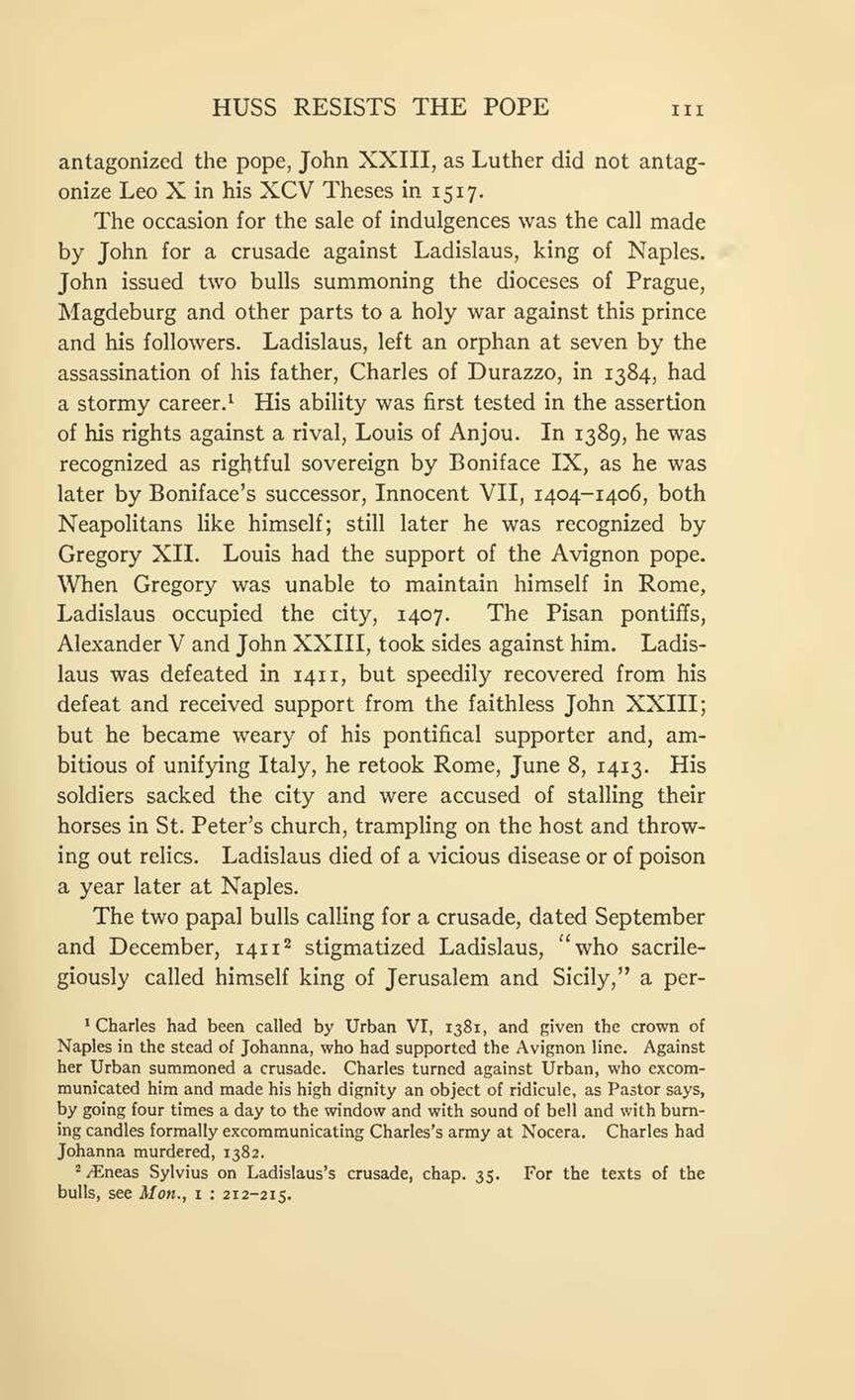antagonized the pope, John XXIII, as Luther did not antagonize Leo X in his XCV Theses in 1517.
The occasion for the sale of indulgences was the call made by John for a crusade against Ladislaus, king of Naples. John issued two bulls summoning the dioceses of Prague, Magdeburg and other parts to a holy war against this prince and his followers. Ladislaus, left an orphan at seven by the assassination of his father. Charles of Durazzo, in 1384, had a stormy career.[1] His ability was first tested in the assertion of his rights against a rival, Louis of Anjou. In 1389, he was recognized as rightful sovereign by Boniface IX, as he was later by Boniface’s successor, Innocent VII, 1404–1406, both Neapolitans like himself; still later he was recognized by Gregory XII. Louis had the support of the Avignon pope. When Gregory was unable to maintain himself in Rome, Ladislaus occupied the city, 1407. The Pisan pontiffs, Alexander V and John XXIII, took sides against him. Ladislaus was defeated in 1411, but speedily recovered from his defeat and received support from the faithless John XXIII; but he became weary of his pontifical supporter and, ambitious of unifying Italy, he retook Rome, June 8, 1413. His soldiers sacked the city and were accused of stalling their horses in St. Peter’s church, trampling on the host and throwing out relics. Ladislaus died of a vicious disease or of poison a year later at Naples.
The two papal bulls calling for a crusade, dated September and December, 1411[2] stigmatized Ladislaus, “who sacrilegiously called himself king of Jerusalem and Sicily,” a per-
- ↑ Charles had been called by Urban VI, 1381, and given the crown of Naples in the stead of Johanna, who had supported the Avignon line. Against her Urban summoned a crusade. Charles turned against Urban, who excommunicated him and made his high dignity an object of ridicule, as Pastor says, by going four times a day to the window and with sound of bell and with burning candles formally excommunicating Charles’s army at Nocera. Charles had Johanna murdered, 1382.
- ↑ Æneas Sylvius on Ladislaus’s crusade, chap. 35. For the texts of the bulls, see Mon., 1: 212–215.
